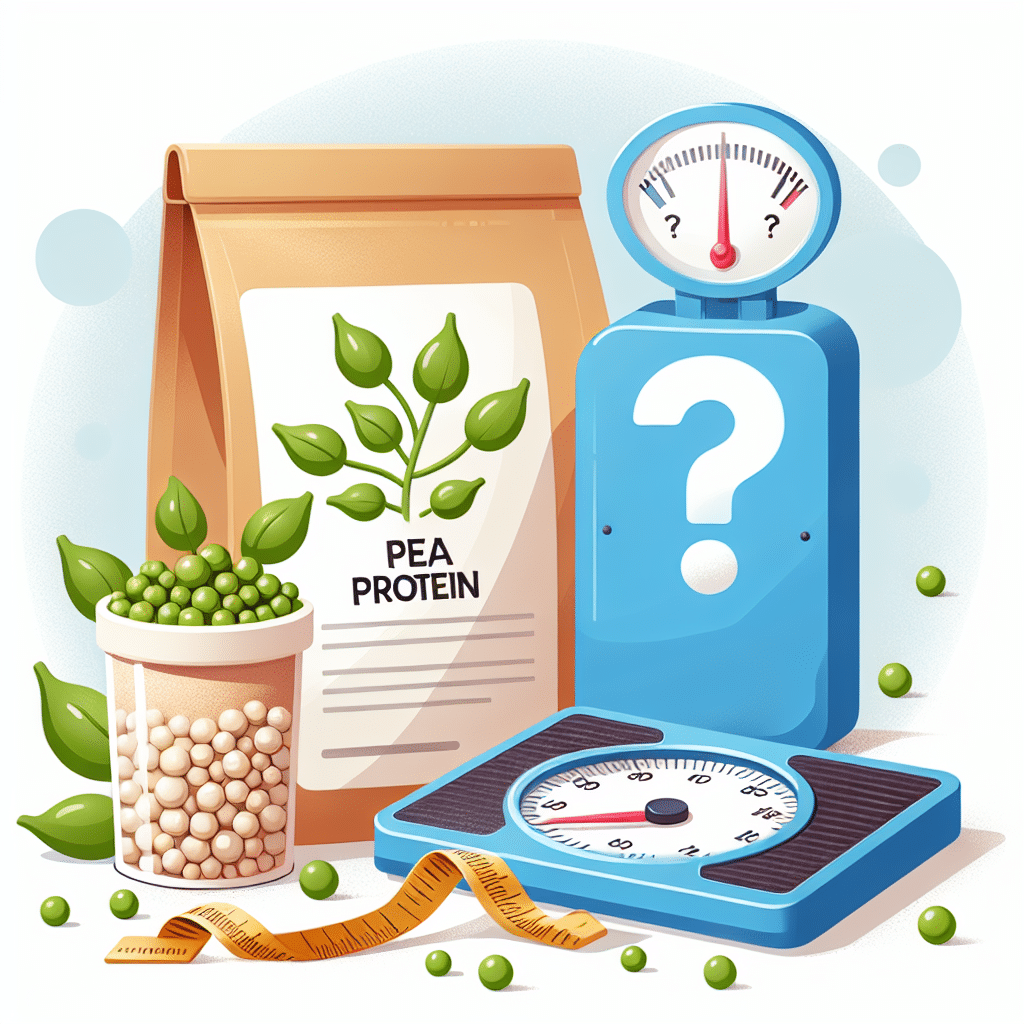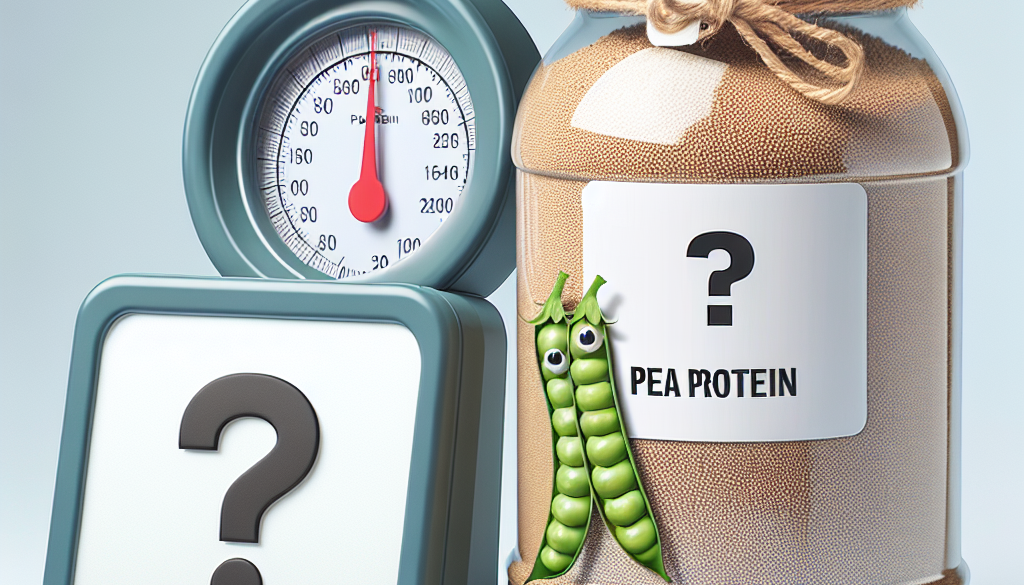Can Pea Protein Cause Lbs? Deep dive
Table of Contents
- Pea Protein and Weight Management: Can It Cause Pounds to Pack On?
- Understanding Pea Protein
- Nutritional Profile and Weight Considerations
- Can Pea Protein Cause Weight Gain?
- Research and Case Studies
- How to Incorporate Pea Protein for Weight Management
- Conclusion: Pea Protein as a Weight Management Ally
- Discover ETprotein’s Premium Pea Protein Products
Pea Protein and Weight Management: Can It Cause Pounds to Pack On?

Pea protein has become a popular plant-based alternative to animal-derived proteins, especially among vegetarians, vegans, and those with dietary restrictions. As its popularity grows, so do the questions surrounding its effects on weight management. One common concern is whether consuming pea protein can lead to weight gain, or in other words, can pea protein cause lbs (pounds) to pack on? This article delves into the nutritional profile of pea protein, its impact on weight, and how it can be integrated into a balanced diet.
Understanding Pea Protein
Pea protein is derived from yellow split peas and is a high-quality protein that contains all nine essential amino acids. It is particularly rich in branched-chain amino acids (BCAAs), which are crucial for muscle building and repair. Pea protein is also hypoallergenic, making it a suitable option for those with allergies to dairy, soy, or gluten.
Nutritional Profile and Weight Considerations
When examining the potential weight impact of pea protein, it’s essential to consider its nutritional profile:
- Calories: Pea protein is relatively low in calories, which can help maintain a calorie deficit for weight loss.
- Protein Content: High protein content can increase satiety and reduce appetite, potentially leading to lower calorie intake.
- Fiber: Pea protein often contains some dietary fiber, which can further enhance feelings of fullness.
- Carbohydrates and Fats: Pea protein typically has low levels of carbohydrates and fats, making it a lean source of protein.
Given these attributes, pea protein can be a beneficial addition to a weight management plan. However, as with any food or supplement, portion control and overall dietary context are key.
Can Pea Protein Cause Weight Gain?
The simple answer is that pea protein, like any food, can contribute to weight gain if consumed in excessive amounts that lead to a calorie surplus. However, when used appropriately, pea protein can be part of a weight maintenance or loss strategy. Here’s why:
- Protein and Satiety: Protein is the most satiating macronutrient, and pea protein can help you feel full longer, potentially reducing overall calorie intake.
- Metabolism Boost: A higher protein intake can slightly increase the number of calories your body burns through the thermic effect of food (TEF).
- Muscle Maintenance: Adequate protein intake is essential for preserving lean muscle mass, especially during weight loss, which can help maintain metabolic rate.
It’s also worth noting that pea protein is often used in meal replacements and protein shakes, which can be strategically used to manage calorie intake.
Research and Case Studies
Several studies have investigated the effects of plant-based proteins on weight management. For instance, a study published in Nutrition Journal found that pea protein was as effective as whey protein in promoting satiety and reducing calorie intake in the subsequent meal. Another study in Obesity showed that plant-based diets, which may include pea protein, were effective for weight loss.
Case studies also support the role of pea protein in weight management. For example, individuals who have incorporated pea protein shakes into their diets as meal replacements have reported successful weight loss and improved body composition.
How to Incorporate Pea Protein for Weight Management
To effectively use pea protein for weight management, consider the following tips:
- Use pea protein shakes as a convenient post-workout recovery drink or a meal replacement when time is limited.
- Include pea protein in your recipes, such as smoothies, oatmeal, or baked goods, to boost protein content without adding excessive calories.
- Pair pea protein with a balanced diet rich in whole foods, including vegetables, fruits, whole grains, and healthy fats.
- Monitor portion sizes to ensure you’re not consuming more calories than you need.
Remember, the key to weight management is a holistic approach that includes a balanced diet, regular physical activity, and lifestyle modifications.
Conclusion: Pea Protein as a Weight Management Ally
In conclusion, pea protein can be a valuable component of a weight management plan when used correctly. Its high protein content can promote satiety and muscle maintenance, while its low calorie and fat profile make it an attractive option for those looking to manage their weight. However, it’s essential to maintain a balanced diet and monitor overall calorie intake to prevent unwanted weight gain.
The key takeaways are that pea protein can support weight loss goals if it’s part of a calorie-controlled diet and that it’s a versatile, nutritious option for those seeking plant-based protein sources.
Discover ETprotein’s Premium Pea Protein Products
If you’re looking to incorporate high-quality pea protein into your diet, ETprotein offers a range of organic and clear pea protein products that cater to various dietary needs. Their pea protein is characterized by a neutral taste, non-GMO, and allergen-free attributes, making it an excellent choice for anyone looking to enhance their protein intake without compromising on quality or taste.
ETprotein’s commitment to purity and quality ensures that you receive a product that supports your health and wellness goals. Whether you’re a fitness enthusiast, someone on a weight management journey, or simply looking to add more plant-based proteins to your diet, ETprotein has you covered.
About ETprotein:
ETprotein, a reputable protein and L-(+)-Ergothioneine (EGT) Chinese factory manufacturer and supplier, is renowned for producing, stocking, exporting, and delivering the highest quality organic bulk vegan proteins and L-(+)-Ergothioneine. They include Organic rice protein, clear rice protein, pea protein, clear pea protein, watermelon seed protein, pumpkin seed protein, sunflower seed protein, mung bean protein, peanut protein, and L-(+)-Ergothioneine EGT Pharmaceutical grade, L-(+)-Ergothioneine EGT food grade, L-(+)-Ergothioneine EGT cosmetic grade, L-(+)-Ergothioneine EGT reference grade and L-(+)-Ergothioneine EGT standard. Their offerings, characterized by a neutral taste, non-GMO, allergen-free attributes, with L-(+)-Ergothioneine purity over 98%, 99%, cater to a diverse range of industries. They serve nutraceutical, pharmaceutical, cosmeceutical, veterinary, as well as food and beverage finished product distributors, traders, and manufacturers across Europe, USA, Canada, Australia, Thailand, Japan, Korea, Brazil, and Chile, among others.
ETprotein specialization includes exporting and delivering tailor-made protein powder and finished nutritional supplements. Their extensive product range covers sectors like Food and Beverage, Sports Nutrition, Weight Management, Dietary Supplements, Health and Wellness Products, and Infant Formula, ensuring comprehensive solutions to meet all your protein needs.
As a trusted company by leading global food and beverage brands and Fortune 500 companies, ETprotein reinforces China’s reputation in the global arena. For more information or to sample their products, please contact them and email sales(at)ETprotein.com today.












